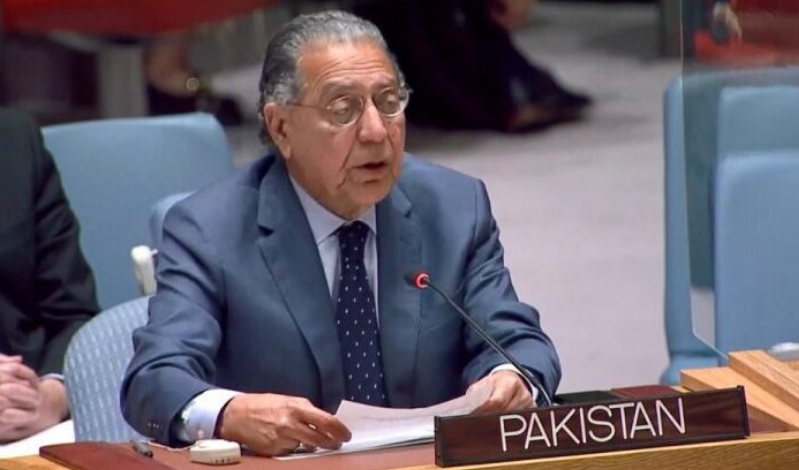New York (Web Desk/Agencies): Pakistan has called for developing a legally-binding international instrument to address growing “malicious activities” in cyberspace, such as the involvement of an Indian network running a vicious disinformation campaign against Pakistan that a European monitoring group uncovered some five years ago.
“This was a systematic and state-led campaign carried out to spread disinformation, and misuse the UN as well as European institutions with the aim of maligning Pakistan,” he said.
Ambassador Munir Akram told a United Nations Security Council high-level debate on evolving threats in cyberspace, convened by South Korea, the 15-member body’s president for June.
Stressing that several countries, including Pakistan, are victims of disinformation, the Pakistani envoy highlighted the 2019 and 2020 reports from the EU DisinfoLab, a Brussels-based NGO, regarding anti-Pakistan propaganda and cyberwarfare against Pakistan involving more than 10 so-called non-governmental organizations fraudulently accredited to the UN Human Rights Council; more than 750 fake media outlets and 550 fake websites even resurrecting dead people.
“The exposé on disinformation campaign by EU Disinfolab requires global attention,” the Pakistani envoy said, noting that cyberwarfare has emerged as an important domain of warfare by State and non-State actors.
“We must develop modalities to prevent such illegal and blatant misuse of cyber tools to promote the narratives and objectives of the hostile States,” he added.
Ambassador Akram recalled the General Assembly’s 2021 adoption by consensus of a resolution on disinformation, sponsored by Pakistan, that affirmed the responsibility of States to counter the dissemination of disinformation that undermines the promotion of peace and the cooperation among states.
“As a victim of continuing hostile cyber- and other propaganda, Pakistan remains committed to countering the virus of disinformation,” he said.
“We will promote action on this through international cooperation, including under the auspices of the United Nations.”
While acknowledging the Security Council’s role in addressing specific cyber threats to international peace and security, Ambassador Akram said that Pakistan believes that the
Open-Ended Working Group on security of and in the use of information and communication technologies 2021-2025 (OEWG) was best placed to promote international cooperation and consensus-based responses to the challenges posed and opportunities offered by the rapid advances in Information and Communications Technology (ICT).
“Pakistan shares the view that it is essential to develop a legally binding international instrument, tailored to the unique attributes of ICTs in order to provide a regulatory framework and a governance mechanism essential to a stable and secure cyberspace.
“Such a legal and institutional framework should address the concerns and interests of all parties and be negotiated within the UN with the equal participation of all States,” Ambassador Akram added.
Appropriate confidence building measures (CBMs), such as voluntary exchange of information and best practices, he said could contribute to increasing transparency and predictability in cyberspace and reduce the likelihood of misunderstandings and thus reduce the risk of conflict.
Pakistan, he said, attached immense importance to leveraging digital technologies for socio-economic development and more effective and efficient governance and public service delivery.
“The objective can be achieved by bridging the digital divide between developed and developing countries through capacity-building and enhanced and open international cooperation.”


